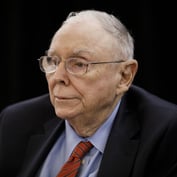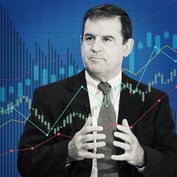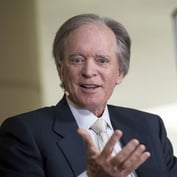Quick, define the term “fiduciary.” While financial planners of all stripes are familiar with the word, many would likely hem and haw when it comes to actually defining it, and, even worse, often refuse to admit that they’re subject to fiduciary standards.
Brokerage firms and their reps are perhaps the worst at owning up to their obligation as a fiduciary. Why? Primarily because many brokers still argue that they’re merely executing transactions for clients, and therefore shouldn’t be held responsible if clients make shoddy investment choices. But, as we’re all aware, brokerage firms are providing more comprehensive financial advice these days, and whether they like it or not, do have a fiduciary duty, even if it’s just a moral fiduciary duty.
But what about the area beyond the moral? Do advisors have a legal fiduciary duty? Congress has noticed brokers’ newfound advisory status, and is angling to mandate that brokerage firms and their registered reps be held to the same fiduciary standards as registered investment advisors, banks, and insurance companies when handling qualified retirement accounts. Section 105 of the Pension Security Act (H.R. 1000), sponsored by Rep. John Boehner (R-Ohio), chairman of the House Committee on Education and the Workforce–which passed the House May 14, and is now tied up in the Senate–requires brokers to adhere to fiduciary guidelines under the Employee Retirement Income Security Act (ERISA).
For the first time, the legislation is “going to recognize the registered rep as a prudent expert under ERISA,” says Donald Trone, president of the Foundation for Fiduciary Studies, who’s also the director of the Center of Fiduciary Studies, which offers coursework through the University of Pittsburgh. “Now, a registered rep working with a qualified retirement account will have the nearly impossible task of avoiding fiduciary status.” The legislation will also encourage 401(k) plan sponsors to hire investment advisors to provide specific investment advice to plan participants, Trone notes. “The caveat to the advice provided is that it must meet a fiduciary standard of care.”
Harold Evensky, president of Evensky, Brown & Katz in Coral Gables, Florida, says it’s about time brokers–as well as all financial advisors–are legally bound to fiduciary standards. Evensky says that “anyone providing advice to the public, and certainly those that are marketing themselves as providing advice” are deemed fiduciaries. With brokers, if they’re performing a transaction, he says, then they don’t have a fiduciary duty, “but clearly the [brokerage] business has gone well beyond [just transactions], though the responsibility has not. I think that’s unconscionable.”
Numerous courts have ruled that investment advice must meet fiduciary standards, Evensky says, but if H.R. 1000 is enacted, the term fiduciary will become much clearer. Indeed, Tom Grzymala, president and CEO of Alexandria Financial Associates in Alexandria, Virginia, says that while H.R. 1000 only requires brokers and advisors to comply with fiduciary standards under ERISA, he’s convinced that, once enacted, it will only take a few strikes of a judge’s gavel to broaden the legislation to include all types of investment accounts.
What’s holding up a Senate vote is a debate over the 401(k) advice provision within H.R. 1000 that says advisors should not have to be independent of the sponsoring organization in order to provide advice to plan participants, as long as the potential “conflict in fees are disclosed,” Trone says. There are some in the Senate who argue that an advisor should be independent of the service provider.
While it’s anyone’s guess which provisions will make it into the final bill, Trone says he’s confident that the final version will require “investment advice to meet a fiduciary standard of care.”
Defining the Term
The term “fiduciary” itself is often considered to be an obscure term. Securities and Exchange Commission-registered investment advisors are, without question, deemed to be a fiduciary, Trone says, whether they acknowledge it or not. And so are those advisors who are state-registered. But NASD-registered reps tend to have a problem with the label because they’re held to suitability standards, not fiduciary ones, under NASD regulations. Therefore, there is “massive confusion among consumers and advisors [about] the demarcation between those two parties,” Trone says. Furthermore, he says, “I’d be willing to bet that a large percentage of the arbitration cases involving brokers is based on this confusion.” NASD rules were designed to guide brokers when executing a transaction or selling an investment. But brokers are now “being encouraged to put assets under management following an investment process,” Trone says.
The NASD is well aware that there’s a problem in brokers not being held to fiduciary standards, Trone says, but the regulator has yet to come up with a remedy. That’s where H.R. 1000 and the Foundation for Fiduciary Studies come in. Trone believes H.R. 1000 is likely to have a “ripple effect” across the financial services industry, because it will require investment advice to live up to fiduciary standards. “I think that’s going to cause the industry to pause and say, ‘Have we ever defined this?’” The Foundation has offered up its own definition to clarify when a registered rep is a fiduciary: “that demarcation between executing the transaction and now serving as an advisor can be easily defined as that point when the registered rep is providing comprehensive and continuous investment advice to a client,” Trone says. The Foundation is also offering two credentials to help financial services professionals understand their fiduciary duties–the Accredited Investment Fiduciary (AIF) and the Accredited Investment Fiduciary Auditor (AIFA).








 August 01, 2003 at 04:00 AM
August 01, 2003 at 04:00 AM









